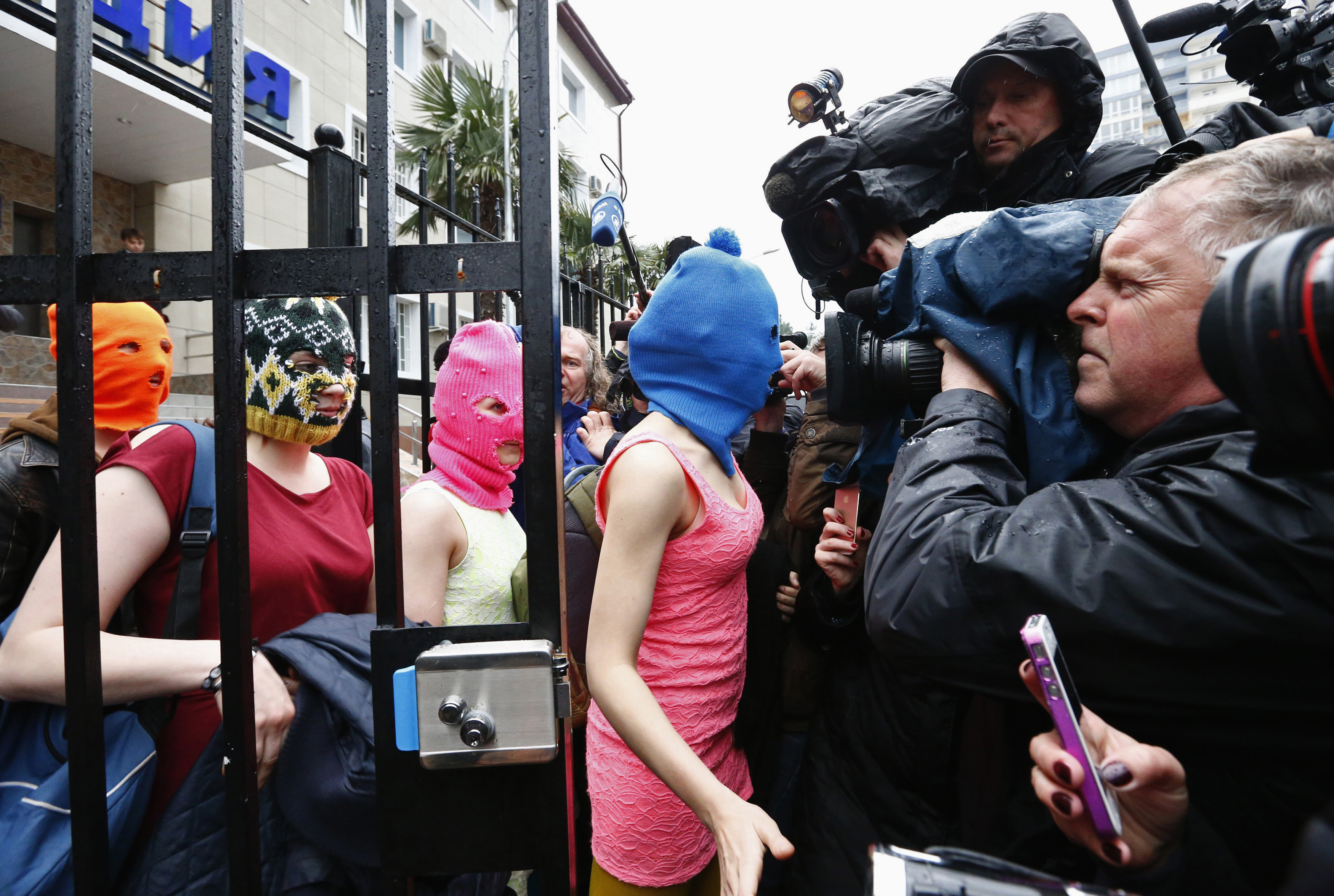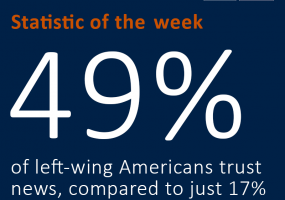How the Kremlin gained control of Russia's media

2.10.18
Allegations of Russian interference in global affairs, including the US and French presidential elections and the UK’s Brexit referendum, have highlighted the Kremlin's influence on some of the biggest political issues. In her new paper, 'Human wrongs: How state-backed media helped the Kremlin weaponise social conservatism', Journalist Fellow Daria Litvinova describes how the government of her native Russia has managed to control domestic reporting of news. She looks at the effect this has had on the Russian population, as well as reasons to be cautiously optimistic.
Daria writes that since 2012 – the start of Vladimir Putin’s third presidential term – the Kremlin has increasingly tried to influence domestic affairs through control of the media. Through this control, the paper states, the government has promoted a conservatism that has rested on three pillars: the importance of the Orthodox Church, “family values,” and “the glorious Russian past”.
Daria explains this new period of greater control was achieved through the hiring and firing of senior managers and editorial staff by Kremlin-friendly media owners, the cancellation of television shows even mildly critical of the government, and “a whirlwind of laws and regulations that outlined various restrictions on the media.”
As one example of how this became evident, Daria describes how, in the early 2010s, the tone of state television clearly changed, with the country “increasingly portrayed as a last bastion of traditional values and morality attacked by a decadent, decaying West.”
Daria found herself at the centre of this move to greater state control when state-run news agency RIA Novosti, for which she worked, was shut down and replaced by Russia Today, set up to advance the country’s image abroad. The speculation was that RIA Novosti had veered too far from the Kremlin line.
As part of her research Daria analysed news stories in two Kremlin-friendly media outlets, the state-run Rossia 1 TV channel and the nominally-independent Komsomolskaya Pravda newspaper. The 136 items that Daria analysed related to the actions of protest rock group Pussy Riot, same-sex marriage and the “gay propaganda law”, which attacks the presentation of “non-traditional” family structures in society. Daria found that: “In the vast majority of the stories, both sides of the conflict were not represented.”
Daria has reasons to be hopeful in her assessment of the evolving Russian media landscape. She finds that younger people are increasingly sourcing their news online. This has coincided with a growth of smaller, independent online news outlets which are harder to repress. The growth of social media and blogs – even those that are ‘apolitical’ – is also eroding television’s role as the dominant medium.
The research further cites a number of outlets whose success in reaching a sizeable audience, while providing some balance to how news is covered in Russia, comes from covering a wide range of stories that doesn’t just focus on politics.
Despite these reasons to be optimistic, Daria believes there is still a long way to go.




